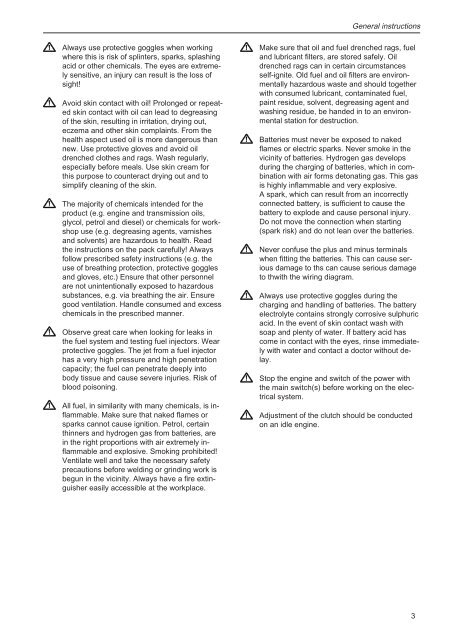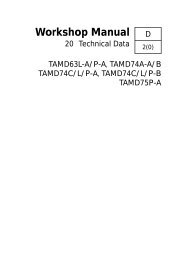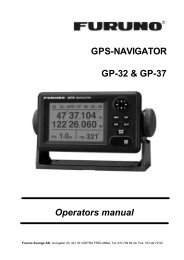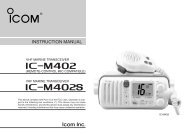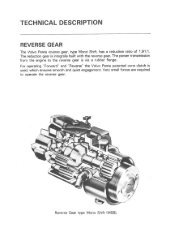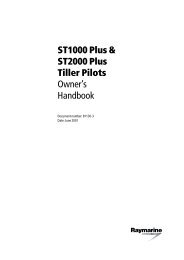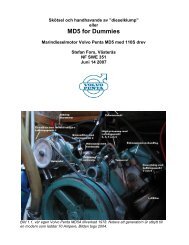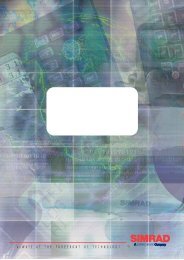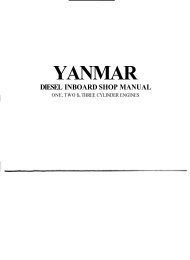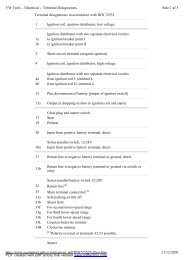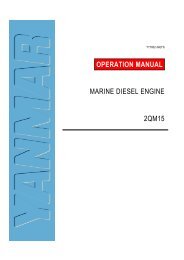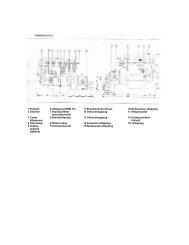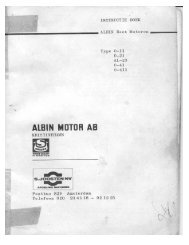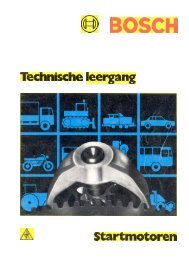Workshop Manual
Workshop Manual
Workshop Manual
- No tags were found...
You also want an ePaper? Increase the reach of your titles
YUMPU automatically turns print PDFs into web optimized ePapers that Google loves.
General instructionsAlways use protective goggles when workingwhere this is risk of splinters, sparks, splashingacid or other chemicals. The eyes are extremelysensitive, an injury can result is the loss ofsight!Avoid skin contact with oil! Prolonged or repeatedskin contact with oil can lead to degreasingof the skin, resulting in irritation, drying out,eczema and other skin complaints. From thehealth aspect used oil is more dangerous thannew. Use protective gloves and avoid oildrenched clothes and rags. Wash regularly,especially before meals. Use skin cream forthis purpose to counteract drying out and tosimplify cleaning of the skin.The majority of chemicals intended for theproduct (e.g. engine and transmission oils,glycol, petrol and diesel) or chemicals for workshopuse (e.g. degreasing agents, varnishesand solvents) are hazardous to health. Readthe instructions on the pack carefully! Alwaysfollow prescribed safety instructions (e.g. theuse of breathing protection, protective gogglesand gloves, etc.) Ensure that other personnelare not unintentionally exposed to hazardoussubstances, e.g. via breathing the air. Ensuregood ventilation. Handle consumed and excesschemicals in the prescribed manner.Observe great care when looking for leaks inthe fuel system and testing fuel injectors. Wearprotective goggles. The jet from a fuel injectorhas a very high pressure and high penetrationcapacity; the fuel can penetrate deeply intobody tissue and cause severe injuries. Risk ofblood poisoning.All fuel, in similarity with many chemicals, is inflammable.Make sure that naked flames orsparks cannot cause ignition. Petrol, certainthinners and hydrogen gas from batteries, arein the right proportions with air extremely inflammableand explosive. Smoking prohibited!Ventilate well and take the necessary safetyprecautions before welding or grinding work isbegun in the vicinity. Always have a fire extinguishereasily accessible at the workplace.Make sure that oil and fuel drenched rags, fueland lubricant filters, are stored safely. Oildrenched rags can in certain circumstancesself-ignite. Old fuel and oil filters are environmentallyhazardous waste and should togetherwith consumed lubricant, contaminated fuel,paint residue, solvent, degreasing agent andwashing residue, be handed in to an environmentalstation for destruction.Batteries must never be exposed to nakedflames or electric sparks. Never smoke in thevicinity of batteries. Hydrogen gas developsduring the charging of batteries, which in combinationwith air forms detonating gas. This gasis highly inflammable and very explosive.A spark, which can result from an incorrectlyconnected battery, is sufficient to cause thebattery to explode and cause personal injury.Do not move the connection when starting(spark risk) and do not lean over the batteries.Never confuse the plus and minus terminalswhen fitting the batteries. This can cause seriousdamage to ths can cause serious damageto thwith the wiring diagram.Always use protective goggles during thecharging and handling of batteries. The batteryelectrolyte contains strongly corrosive sulphuricacid. In the event of skin contact wash withsoap and plenty of water. If battery acid hascome in contact with the eyes, rinse immediatelywith water and contact a doctor without delay.Stop the engine and switch of the power withthe main switch(s) before working on the electricalsystem.Adjustment of the clutch should be conductedon an idle engine.3


